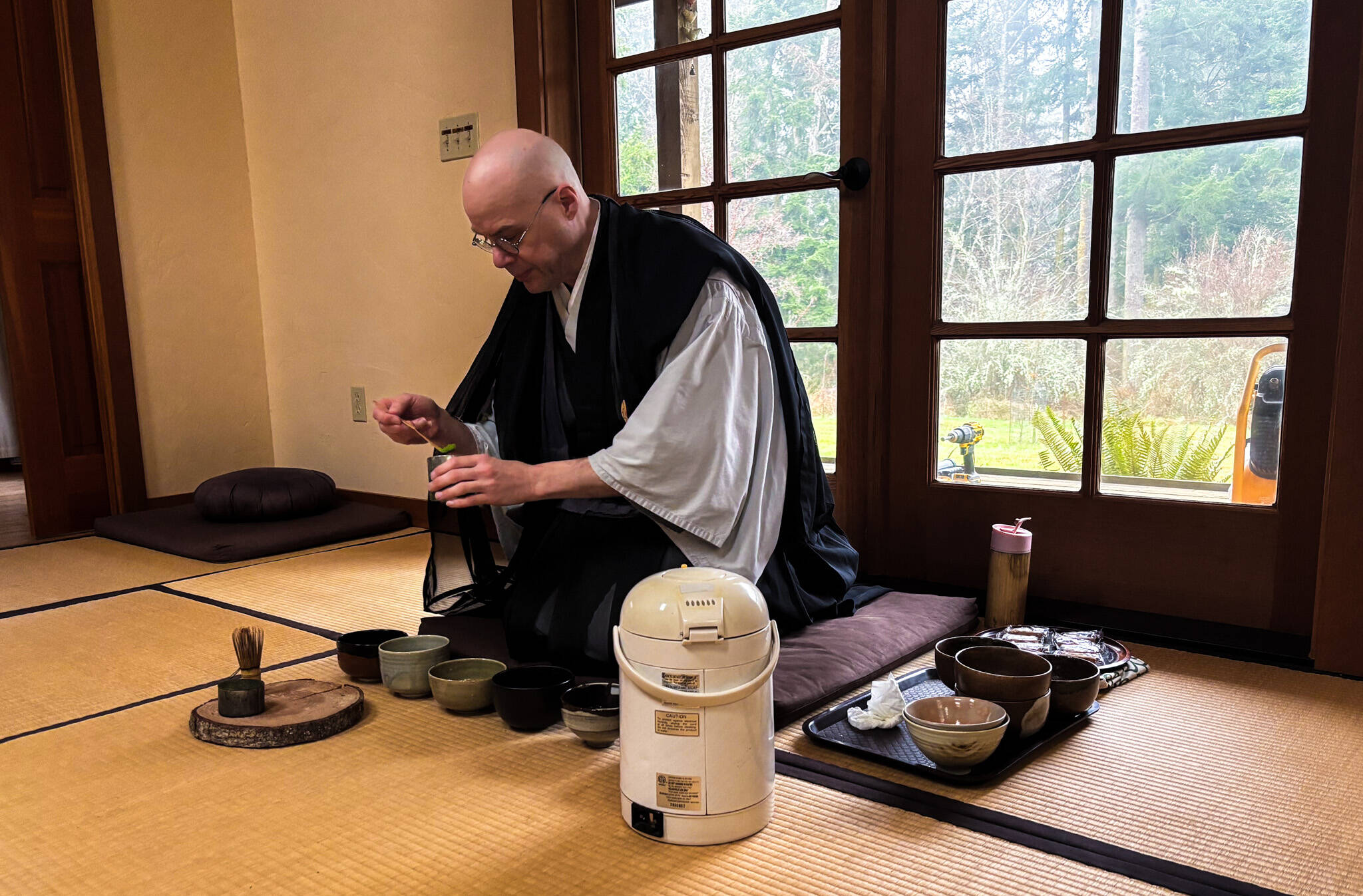Headlights cut through the dark as cars pulled into the quiet estate mixing with the forest. We killed the engines and followed the head monk, Tendo, who wore a black robe and cap, along the path to the only building with a light on.
Of the six guests of the Tahoma One Drop Zen Monastery Sunday morning, three of us were new-comers. We bowed at the edge of the hardwood floor with our hands together and moved across the edge of the room, along the mats. We bowed once more and took seats on our pillows, facing inward, as the morning’s pale blue entered a room lit with candles and lanterns.
After Taigen Shodo Harada Roshi, the abbot of Sogen-ji- a Rinzai Zen training monastery in Okayama, Japan, visited Washington to meet with followers in 1996, he founded the Freeland monastery. The south end provided a natural setting, far from the city. He purchased 60 acres.
The monastery operates as a Zendo, where people come to learn and practice Rinzai Zen Buddhism. The Tahoma space is one of four Rinzai Zen monasteries in the world, the others located in Japan, Germany and India. Buddhist monasteries are commonly named after mountains, hence “Tahoma,” the name of Mt. Rainier to several Native tribes.
Tendo lit incense and hit a semantron with a mallet in a beat, beginning our chants of Buddhist structure, philosophy and tenants. Tendo later said a large part of the chant is breathwork, as Buddhists recite with their diaphragm and take large breaths as they do so. Controlled breathing leads to longer life, he said.
Then, the room went dark again, and we began zazen: sitting meditation.
People who are not used to meditating may start by thinking about their past or their future. They may have intrusive thoughts, like “what if I fart in the middle of this session?”
They may not have perfect posture. Their legs may fall asleep. Joints may stiffen.
As time passes, all these distracting thoughts may be focused into breathing. Inhale, exhale. Finally, when a newcomer can think presently, think of nothing at all, a chime rings out.
This is why Buddhists encourage regular practice, to do better next time.
Next we stood, and Tendo led us through group stretches. Here, meditation never ceased.
The purpose of these stretches, Tendo said, is to mind the sensation. To breathe deeply and feel presently.
Then, we sat for a discussion.
Tendo told of centuries-old Buddhist teachings that didn’t feel so different from the modern day: stuff on technological distraction, maintaining a healthy diet and useful daily practices.
It turned out I may not have been alone with my intrusive thoughts. Tendo told us that once, when a 108-year-old Dai Sojo, high-ranking priest, was asked the secret to his long life, he replied: “eating little, eating plain food, a daily hot bath, chanting and letting rip an occasional fart.”
We ended the session by chanting bodhisattva vows and bowing at our mats. Then, we met in a separate building for a tea ceremony, more of a casual discussion between the monk and his students.
Tendo handed out macadamia shortbread to balance the bitterness of the matcha he was mixing in a bowl. He told us to eat them immediately.
When the bowls came around, he told us to drink immediately. The tea would only be hot for so long.
The monk answered our questions, and when the tea was gone, he talked us through traditional bowl appreciation. We studied the craftmanship of the hand-made bowls, admiring them.
Then, he said, “these bowls are just OK. You don’t need to appreciate them too much.”
Tahoma One Drop Zen Monastery holds Zazenkai, or community sitting, each Sunday from 8 a.m. to 9:30 am. in Freeland. The session is free with virtual options and open to all.


